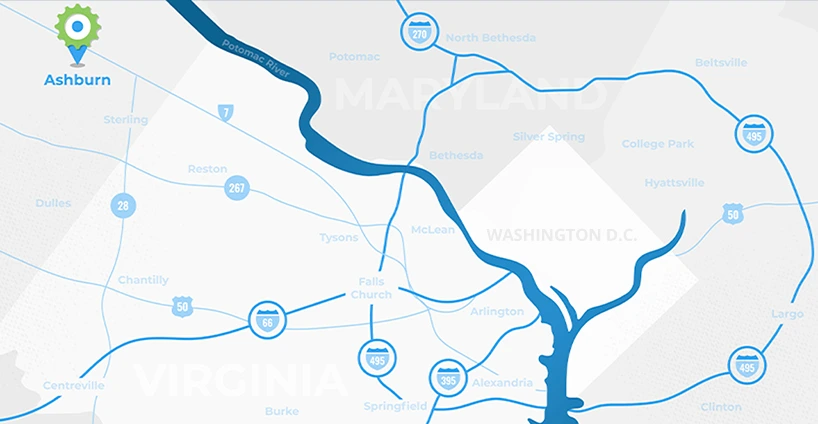Creating a Results-Oriented Online Marketing Budget
There are so many different facets of online marketing that it can be difficult for companies to determine an appropriate budget. Without careful planning, things can quickly spiral out of control with various services vying for every dollar you have. While we can’t tell you how much to spend, we can tell you the most important components of any internet marketing plan so that you can take them into account when deciding how to best make use of your budget.
#1 – SEO or Search Engine Optimization
SEO is arguably one of the most important parts of online marketing. Creating an optimized website will allow your company to rank in the top of the organic (unpaid) search results for key words and phrases. Ethical SEO – the kind that generates real results without using sneaky or otherwise punishable tactics - can be costly, but the results are well worth the money. How many users do you know who completely ignore pay-per-click ads in favor of the more reputable organic search listings? Getting your business to the top of those listings will pay off in spades.
Budgeting: High quality SEO plans span a pretty wide price range. You should be prepared to pay more if you have a large number of keywords to promote or an extraordinary number of pages on your site to optimize. A price range of $500-5000 per month is normal when it comes to SEO, but local small businesses pay on average around $1200.
#2 – Google AdWords Pay-Per-Click Advertising
Although as I said, some users do ignore paid search ads, PPC is still the fastest way to put your company in front of consumers who are looking for products and services like yours. We recommend PPC advertising to all of our clients because of the great ROI. While you’re waiting for the SEO magic that will launch your site to the top, paid positioning is the next best thing. Besides, with so many different words and phrases to target, there will always be some that perform better in the PPC model than they do in the organic search results.
Budgeting: Since you only pay when users click on your ad, you can set a daily budget that AdWords will follow when placing your advertisement in search results and on pages of their display network. The more you spend, the more clicks your website will receive. Experts recommend a spend of 3-7% of your business’ gross revenue in advertising (depending on your industry). To hire an reputable agency, you will need a minimum spend of at least $1000 a month. Additionally, most agencies charge 15-25% of your spend to manage and optimize your campaigns for you.
#3 – Social Networking
When it comes to popular social networks like Facebook, Twitter, and LinkedIn, you have a couple of options, and you may want to budget for them both. The first option is to become involved, engage your followers, and actively participate on your own pages as well as in groups and forums for people with related interests. Having an active social media following can do a lot to boost your sales and raise brand awareness over multiple platforms.
A complimentary option is to use social network advertising options to drive traffic to your sites or social profiles. Like Google AdWords, most of these ads are run on a pay-per-click basis, so you pay only when users click on your links. Using Facebook or LinkedIn ads can be a powerful way to reach out to potential customers.
Budgeting: Packages vary depending how active you want your social presence to be. For example, ImageWorks Creative offers a social engagement plan that starts at $199/month.
#4 – Citation Site Listings & Advertising
Chances are, if you’ve ever found yourself in an unfamiliar city, you’ve used a citation site like Yelp, Manta, CitySearch, or FourSquare to find a local business. As more and more people begin using smartphones and tablets, these local search directories will only become ever more valuable for businesses looking to market themselves to interested consumers. It’s imperative that your company maintain accurate listings on these sites so that users can find you when they need you.
Budgeting: Marketing agencies tend to maintain relationships with various citation sites, allowing their clients to obtain complete, accurate profiles in a matter of days on a large number of local search platforms. There’s a nominal yearly fee to maintain these listings, but the speed and value can’t be beat. When it comes to setting your internet marketing budget, this will be a very small portion only. You can expect to spend about $45-$500 per citation site per year on your local directory advertising and listing plans.
#5 – Email Marketing
Once potential or past clients share their email address with you, you will want to use this information to stay in touch with them. Email marketing is the ideal way to do this. Creating newsletters or lead nurturing campaigns will allow you to “visit” your prospects by email on a regular basis, notifying them of new products or services, special deals, and other news that will encourage them to revisit your site.
Budgeting: Email marketing has always maintained one of the highest ROIs in the industry. What you spend here will depend on the size of your marketing list, the type of emails you want to send, and the frequency with which you plan to send them. If you are able to prepare and send your emails in-house, you can expect this expense to be minimal. If you’d rather work with an agency to achieve more compelling, professional newsletters with custom graphics and a broad reach, you should budget closer to $2000.
For more help setting a marketing budget and preparing your business for online success, contact us today!
Other articles to help you set a web design or marketing budget:
Setting a Marketing Budget
The Cost of Custom Web Design





